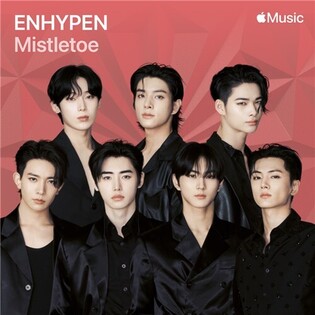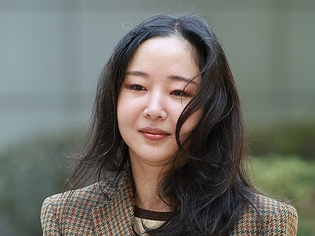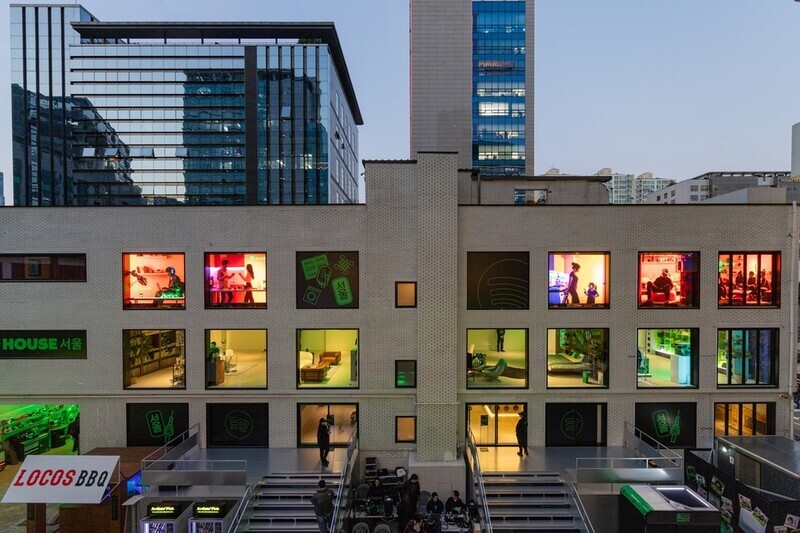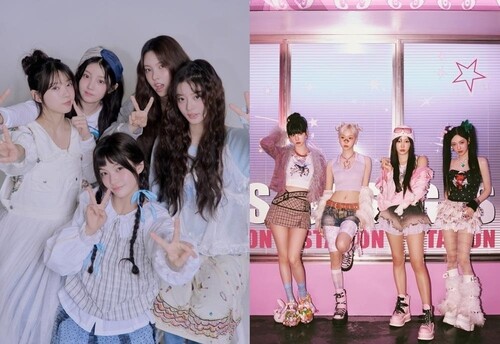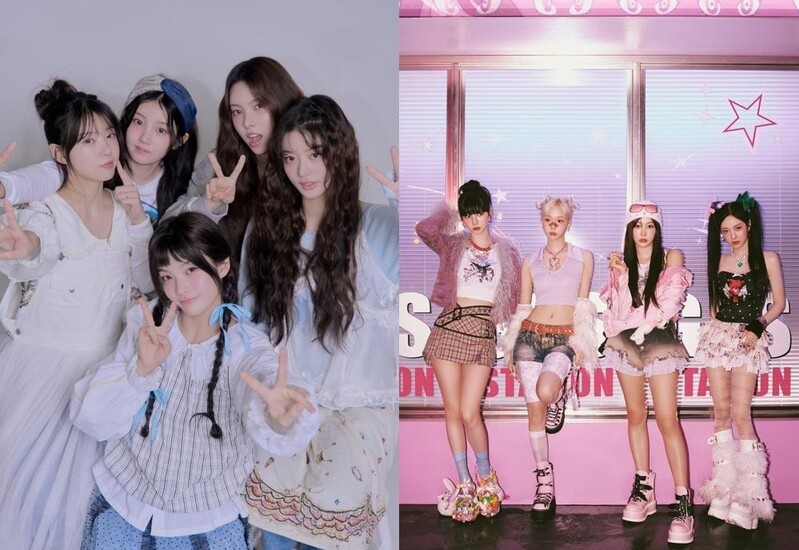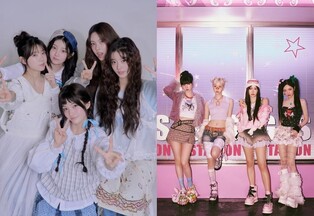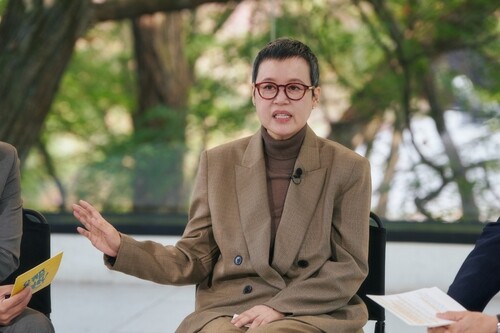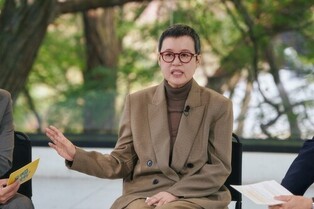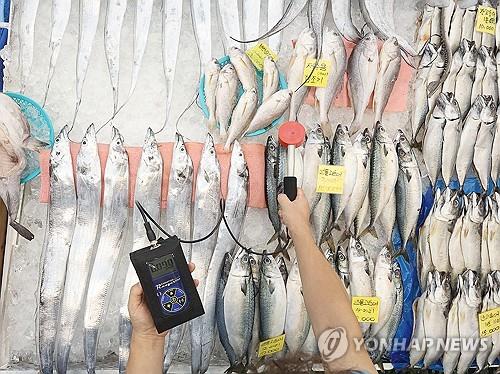 |
| ▲ An official checks radiation levels of fish to be sold at a fish market in the southeastern city of Daegu on Aug. 28, 2023. (Yonhap) |
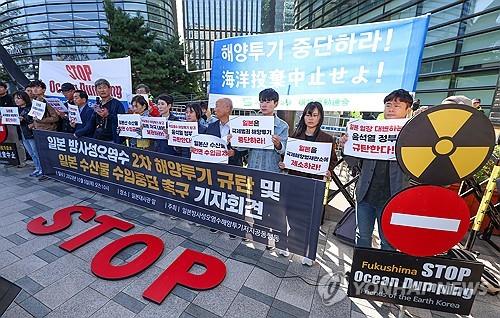 |
| ▲ Environmental activists stage a rally in Seoul on Oct. 5, 2023, to express their objection to Japan's discharge of radioactive water from the crippled Fukushima nuclear power plant into the sea. (Yonhap) |
(LEAD) S Korea-Fukushima-seafood
(LEAD) S. Korea vows thorough radiation tests of seafood as Japan begins 2nd round of Fukushima water release
(ATTN: ADDS upcoming IMO meeting in last 8 paras, photo)
SEOUL, Oct. 5 (Yonhap) -- South Korea will continue intensive radiation tests on domestic and imported seafood as Japan began the second phase of the discharge of contaminated water from its crippled Fukushima nuclear power plant into the ocean on Thursday, the oceans ministry said.
Japan began to release wastewater again from the Fukushima nuclear power plant, which was crippled by a massive 2011 earthquake and tsunami, into the Pacific Ocean earlier in the day, following the first phase of discharge in August and September.
"The government carried out more than 14,000 rounds of radiation tests on seafood, which already surpassed our goal for this year, and all the products met our safety standards," Vice Oceans Minister Park Sung-hoon told a regular press briefing on the Fukushima issue.
Under the intensive testing scheme, the ministry carried out tests on more than 8,000 samples of seafood at the production level so far this year, including more than 1,500 cases among cultured fishery products and nearly 1,000 samples from deep-sea fishing.
It also conducted over 5,500 tests on marine products at local markets, as well as a total of 3,869 rounds of radioactivity checks into over 17,000 tons of seafood imported from Japan this year by end-September, according to the ministry.
"We will continue to carry out seafood radiation checks thoroughly and make all-out efforts to ensure the safe management of seafood," he added.
In August, the ministry began a 100-day intensive inspection into the marking of country of origin for imported seafood products.
The Seoul government banned all seafood imports from eight Japanese prefectures near Fukushima in 2013 on concerns over their radiation levels in the wake of the 2011 meltdown incident, and vowed to keep in place the import curbs until public concerns are all eased.
The ministry has also strengthened seawater radiation tests by doubling the number of coastal spots in territorial waters and more distant areas to over 200 this year, and plans to take samples from 243 locations next year, Park said.
South Korea's imports of Japanese seafood hit the lowest level in two years in August, according to government data.
Meanwhile, the oceans ministry said it will raise the Fukushima issue during the upcoming session on the management of radioactive waste of the IMO's consultative meeting on the London Convention and London Protocol.
The 18th IMO meeting is taking place from Monday for a five-day run in London, and the Fukushima issue is expected to be on the table on Thursday (local time).
"We will once again stress the need to deal with the wastewater discharge in a safe manner in accordance with international standards and procedures to preserve the marine environment," Park said. "We will prioritize the health and safety of our people in managing the issue."
South Korea has called for discussions on the potential impacts of Japan's wastewater release on the environment within the London Convention and Protocol framework.
But Japan has refuted the call, claiming that such a discharge should not be seen as an act of marine dumping.
The London Convention, which has been in force since 1975, is meant to promote the effective control of all sources of marine pollution and to take steps to prevent marine pollution by the dumping of waste and other matter.
In 1996, the London Protocol was agreed in order to modernize the Convention, and it prohibits all dumping, with some exceptions.
Member nations also differ on the matter, as the IMO said in a 2022 document that it is "not certain" that a broad interpretation of the London Protocol would consider that such a disposal would fall within the scope of the treaty.
(END)
(C) Yonhap News Agency. All Rights Reserved


















